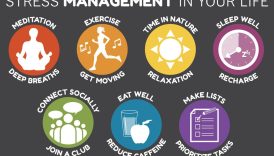Elevate Your Wellness Routine with These Proven Supplements

Introduction to Wellness Supplements
Importance of Supplements in Wellness
In today’s fast-paced world, maintaining a balanced diet alone can be a daunting task. Many individuals find it challenging to meet their nutritional needs through food alone, which is where wellness supplements come into play. These supplements enhance dietary intake by providing essential nutrients that may be missing or underrepresented in our meals. Take Sarah, for example, a busy professional who often skips breakfast. Although she knows the importance of a hearty meal to start her day, she often resorts to coffee to power through her mornings. To bridge this gap, she incorporates a high-quality multivitamin into her daily routine. This simple adjustment helps ensure she receives vital vitamins her body needs – supporting her overall wellness amidst her hectic schedule. Wellness supplements have become a beacon of hope for those looking to bolster their health by filling in the nutritional gaps in their diets.
- Elevate Your Wellness Routine with These Proven Supplements
- Introduction to Wellness Supplements
- Importance of Supplements in Wellness
- How Supplements Support Overall Health
- Vitamin Supplements for Enhanced Wellness
- Vitamin D for Immune Support
- Vitamin C for Antioxidant Protection
- Herbal Supplements for Holistic Health
- Turmeric for Anti-Inflammatory Benefits
- Ashwagandha for Stress Relief
- Mineral Supplements for Optimal Functioning
- Magnesium for Muscle Relaxation
- Zinc for Immune System Support
- Omega-3 Fatty Acids for Brain Health
- Benefits of Omega-3 for Cognitive Function
- Sources of Omega-3 in Diet
How Supplements Support Overall Health
Supplements play a significant role in supporting overall health by targeting specific nutritional deficiencies and enhancing bodily functions. Here’s a closer look at how they can make a difference:
- Enhanced Nutritional Intake: Many people struggle to consume the daily recommended amounts of vitamins and minerals from food alone. Supplements provide a convenient option to meet these needs.
- Targeting Specific Health Concerns: Different supplements can help with particular health conditions. For instance, those with joint pain might find turmeric supplements beneficial for inflammation.
- Boosting Immune Function: Vitamins like C and D have been linked to stronger immune responses, helping individuals fend off common illnesses.
- Promoting Mental Well-Being: Certain nutrient deficiencies have been connected to mood disorders. Incorporating supplements like omega-3 fatty acids can support cognitive health and emotional balance.
In summary, wellness supplements are essential components that complement a healthy lifestyle, addressing various dietary gaps and promoting overall well-being. They serve as a helpful tool, particularly when personal circumstances make it difficult to maintain an ideal diet.
Vitamin Supplements for Enhanced Wellness
Vitamin D for Immune Support
As we delve deeper into the world of wellness supplements, it’s essential to highlight the critical role of vitamins. One key player is Vitamin D, often referred to as the “sunshine vitamin.” This powerful nutrient does more than just keep our bones strong; it is pivotal in bolstering our immune system. Many of us, especially during the colder months, spend less time outdoors, which can lead to a deficiency in Vitamin D. For instance, John, a teacher in Minnesota, noticed that he frequently caught colds during winter. Upon discussing his health with a nutritionist, he learned that his Vitamin D levels were low due to limited sun exposure. After incorporating a Vitamin D supplement into his routine, John found himself feeling more energetic and experienced fewer sick days. Benefits of Vitamin D for Immune Health:
- Enhances pathogen-fighting effects of monocytes and macrophages — white blood cells crucial for immune defense.
- May help reduce the risk of respiratory infections, important during cold and flu seasons.
- Supports overall mood; a deficiency is often linked to feelings of fatigue and sadness.
Vitamin C for Antioxidant Protection
Alongside Vitamin D, Vitamin C deserves special attention. Often celebrated for its immune-supportive properties, Vitamin C is a stellar antioxidant that helps protect our cells from damage caused by free radicals. Consider Maria, a fitness enthusiast who emphasizes natural nutrition but occasionally struggles to consume enough fruits and vegetables. After facing persistent fatigue, she decided to incorporate a Vitamin C supplement. Not only did it help improve her recovery post-workout, but she also noticed an increase in her overall vitality. Key Benefits of Vitamin C:
- Protects cells against oxidative stress and supports healthy aging.
- Enhances the absorption of iron from plant-based foods, helping to prevent anemia.
- Promotes collagen production, essential for skin health, joint support, and wound healing.
Incorporating vitamins D and C into your wellness regimen can serve as a robust foundation for maintaining and enhancing overall health. Whether through sunlight, diet, or supplements, ensuring adequate intake of these essential vitamins is a step toward a healthier lifestyle.
Herbal Supplements for Holistic Health
Turmeric for Anti-Inflammatory Benefits
Transitioning seamlessly from the world of vitamins, we now explore the realm of herbal supplements that enrich our bodies from a holistic perspective. One herb that stands out is turmeric, a vibrant yellow spice famed for its anti-inflammatory properties. This spice, heralded for centuries in Ayurvedic medicine, offers significant benefits that can aid in reducing chronic inflammation—a root cause of many health issues. Take Mark, for example, a marathon runner who struggled with joint pain after long training sessions. After researching natural remedies, he began incorporating turmeric into his daily routine. Within weeks, he noticed a reduction in swelling and discomfort, allowing him to train more effectively. Powerful Benefits of Turmeric:
- Contains curcumin: This active ingredient boasts impressive anti-inflammatory and antioxidant effects.
- Supports joint health: Several studies indicate that turmeric can ease discomfort from arthritis and help maintain mobility.
- May improve mental clarity: Emerging research suggests that curcumin could protect against neurodegenerative diseases.
Adding turmeric to your meals, or opting for supplements, can be an excellent way to harness its healing potential.
Ashwagandha for Stress Relief
Another notable herbal supplement gaining popularity is ashwagandha, an adaptogen known for its stress-relieving properties. In today’s fast-paced world, many individuals experience high levels of stress that can affect their mood and overall health. Consider Lisa, a corporate executive who often found herself overwhelmed with deadlines and responsibilities. After consulting a holistic practitioner, she decided to try ashwagandha supplements. Gradually, she experienced a sense of calm and clearer focus, helping her manage her hectic work life more effectively. Notable Benefits of Ashwagandha:
- Reduces cortisol levels: This herb helps lower the stress hormone, allowing for a more balanced emotional state.
- Enhances energy levels: Many people report improved vitality rather than the jittery feeling associated with caffeine.
- Supports overall well-being: Regular use of ashwagandha can improve sleep quality, benefiting mental and physical health.
Incorporating herbal supplements like turmeric and ashwagandha into daily routines may be a natural and effective way to enhance holistic health. By embracing these nature-derived remedies, individuals can address inflammation and stress—two common barriers to achieving optimal well-being.
Mineral Supplements for Optimal Functioning
Magnesium for Muscle Relaxation
Diving deeper into the world of supplements, we find that minerals play a critical role in supporting optimal body functions. Among them, magnesium stands out for its ability to aid muscle relaxation and enhance overall physical health. Many people experience muscle tension due to stress, exercise, or long hours of sitting. For example, Brian, an office worker who spends his day glued to his desk, began to notice tightness in his shoulders and back. After a brief consultation with his healthcare provider, he decided to incorporate magnesium supplements into his routine. Almost immediately, he felt his muscles unwind, reducing discomfort and improving his overall mobility. Benefits of Magnesium:
- Muscle Relaxation: Magnesium helps regulate muscle contractions, which can alleviate cramping and tightness after strenuous activities.
- Enhanced Sleep Quality: By promoting relaxation, magnesium can improve sleep quality, allowing for better recovery.
- Nervous System Support: It plays a vital role in calming the nervous system, which contributes to a sense of well-being.
Whether through dietary sources like leafy greens, nuts, and seeds or through supplementation, ensuring adequate magnesium intake can significantly impact overall health and relaxation.
Zinc for Immune System Support
Complementing our discussion on minerals is zinc, a powerful nutrient known for its protective role in supporting the immune system. Zinc is crucial for various biochemical processes, including immune responses and wound healing. Consider Emma, a busy mom and teacher who often worried about her family’s health, particularly during flu season. After noticing her children frequently caught colds, she learned about the benefits of zinc and decided to add a supplement to their daily routine. As a result, she noticed fewer sick days and attributed this improvement to the immune-boosting properties of zinc. Key Benefits of Zinc:
- Strengthens Immune Response: Zinc has been shown to enhance the function of immune cells, helping the body ward off infections.
- Supports Wound Healing: This mineral is essential for skin health and can accelerate the healing of cuts and abrasions.
- Antioxidant Properties: Zinc helps protect cells from oxidative stress, contributing to overall health.
Incorporating mineral supplements like magnesium and zinc can provide significant benefits for muscle relaxation and immune support. Utilizing these minerals as part of a well-balanced health regimen enables individuals to thrive both physically and mentally, enhancing their quality of life.
Omega-3 Fatty Acids for Brain Health
Benefits of Omega-3 for Cognitive Function
As we wind down our exploration of vital supplements, it’s essential to highlight the significance of Omega-3 fatty acids, particularly for brain health. These essential fats are not just trendy buzzwords; they are foundational for cognitive function and overall well-being. For many, the importance of Omega-3s became clear during a time of mental fog. Take Alex, a college student who struggled to focus during exams. After some research, he learned about the cognitive benefits of Omega-3s and decided to add a fish oil supplement to his routine. Soon, he found that his concentration improved, which helped him excel in his studies. Benefits of Omega-3s for Cognitive Function:
- Supports Brain Development: Omega-3s are critical during pregnancy and infancy for optimal brain development.
- Enhances Memory and Learning: Studies suggest that these fatty acids can improve both short-term and long-term memory.
- May Reduce Cognitive Decline: Research indicates that Omega-3s may lower the risk of Alzheimer’s and other neurodegenerative diseases as we age.
Incorporating Omega-3s into a daily regimen can serve as a protective barrier against cognitive decline and support mental clarity.
Sources of Omega-3 in Diet
The good news is that incorporating Omega-3 fatty acids into your diet can be both delicious and easy. Here are some of the best sources:
- Fatty Fish: Salmon, mackerel, sardines, and trout are top contenders, packed with EPA and DHA, the two main types of Omega-3s.
- Chia Seeds: A great plant-based source, chia seeds can be added to smoothies, yogurt, or oatmeal for an easy boost.
- Walnuts: These nuts are not only a fantastic snack but also provide a good source of ALA, another type of Omega-3.
- Flaxseeds: Ground flaxseeds can be sprinkled on salads or blended into smoothies for extra nutrition.
- Algal Oil: A vegetarian-friendly supplement derived from algae, it is rich in both EPA and DHA.
In conclusion, Omega-3 fatty acids are pivotal for maintaining brain health and cognitive function. By including these essential fats in one’s diet through various sources, individuals can support their mental acuity and enhance their overall well-being, paving the way for clearer thoughts and sharper memories.




